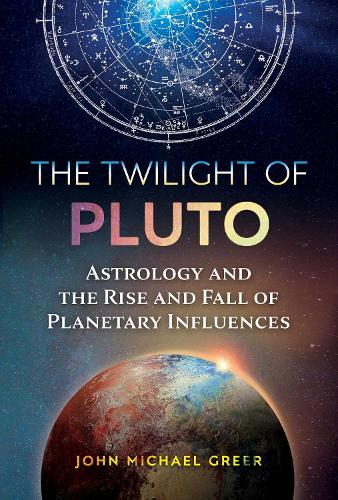
The Twilight of Pluto: Astrology and the Rise and Fall of Planetary Influences
(Paperback)
Publishing Details
The Twilight of Pluto: Astrology and the Rise and Fall of Planetary Influences
By (Author) John Michael Greer
Inner Traditions Bear and Company
Inner Traditions Bear and Company
1st June 2022
United States
Classifications
General
Non Fiction
133.5392
Physical Properties
Paperback
176
Width 152mm, Height 229mm, Spine 13mm
293g
Description
An examination of the waxing and waning influence of demoted planets
Explains in detail how the demotion or proved nonexistence of a planet marks the beginning of a roughly 30-year period in which that planets influence wanes
Explores Plutos arc of influence on individual and collective life in depth, from its discovery in 1930 to the end of its influence in 2036
Offers examples from other demoted planets, such as Ceres, whose fifty-year reign as a planet corresponds very closely to the Romantic Era of history
Recent research in astrology has shown that the discovery of a new planet correlates with the emergence of a new set of influences in individual and collective life. As John Michael Greer reveals, the opposite is also true: the demotion of a planet correlates with the decline of a set of influences into the background.
Exploring the waxing and waning of planetary influences in astrology, Greer explains in detail how the demotion or proved nonexistence of a planet marks the beginning of a roughly 30-year period in which that planets influence fades out. He examines several examples of planet demotion, including Ceres, whose influence began to take shape some 30 years before its discovery in 1801 and gradually faded over the three decades following its demotion in the 1850s.
Examining Plutos astrological influence in depth, from the beginning of the search for Planet X in 1900 to the end of its influence in 2036, the author shows how during the Plutonian era the concept of cosmos--from the ancient Greek meaning that which is beautifully ordered--was in eclipse. Plutos influence led to the rejection of unity, beauty, and order, exemplified through the splitting of the atom by physicists, the splitting of the individual into conscious and subconscious halves by psychoanalysts, and the splitting of the world into warring camps by politicians.
Offering an essential guide not only to the astrology of the future but also to the twilight of the Plutonian era, Greer shows how as Plutos influence fades out in the years ahead, a great many disruptive phenomena of the recent past will fade with it.
Reviews
John Michael Greer is clearly a top-notch astrologer, scholar, and, like Richard Tarnas, a historian with a love of cosmic beauty. The Twilight of Pluto is not only the history of astrology but also the astrology of history. Greer brilliantly demonstrates the mirror of planet and culture, as Pluto moves from theory to discovery to planetary acceptance and then fall and demotion . . . paradigm-shifting insights! I especially appreciate his bold and positive predictions as the Plutonian era fades. Absolutely fascinating! Once I began reading I couldnt stop. * Frederick Hamilton Baker, astrologer and author of Alchemical Tantric Astrology *
In this relatively small volume, John Michael Greer accomplishes major feats, both intellectual and spiritual. Firstly, he has the scholarly wisdom to place planetary discoveries within the widest possible context, reminding us that the discovery of the visible planets is really the Big Bang of Civilization. Then he masterfully applies the alchemical formula solve et coagula to break apart the more modern discoveries, purifying and distilling our understanding of them, before putting them back together into a hopeful new form, using the esoteric tools and cunning for which hes well known. The result is medicine, in the truest sense of the word. * Gary P. Caton, astrologer, author of Hermetica Triptycha *
Author Bio
John Michael Greer is a writer, blogger, and independent scholar who has written more than 70 books, including The King in Orange, Circles of Power, and the award-winning New Encyclopedia of the Occult. A longtime student of astrology, he began working as a political astrologer in 2017. He lives in Rhode Island.
